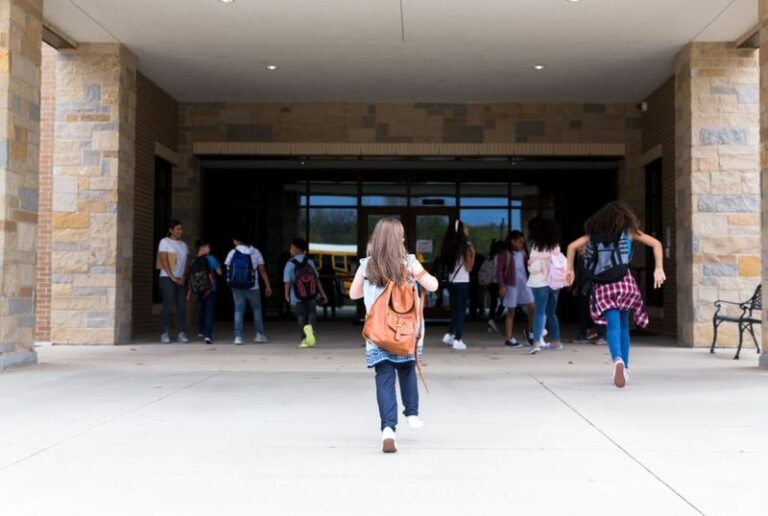
By Lorenza Pamato
After almost thirty years since the revision of the Concordat, which in 1985 made religious instruction optional, the many critical aspects of this teaching are increasingly evident, as demonstrated by the continuing and progressive disaffection of Italian students, both male and female. Although the picture is not easy to define, the Ministry of Education, University and Research (MIUR) does not in fact publish an annual report on the real extent of non-adherence to IRC1, the available sources show that in the three-year period 2018-2021 alone, the number of pupils who decided not to take IRC rose from 12.90% to 14.07%, with peaks of over 20% in the last school segment, with some significant differences between the various school orders and between the various courses of study2.
Proposals to reform the regulatory framework are various and they all start from the recognition of the value of religious culture for the full understanding of our cultural heritage and our history: some move in the direction of a drastic discontinuity – which will, however, have to come to terms with the concordat node3 – such as the recent one by Lucetta Scaraffia, who would like to restore the status of religion as a compulsory subject, but assigning its teaching to teachers selected by the State4, and others aiming to make effective the right of those who do not make use of it to be able to follow an alternative teaching. In fact, CM 22 of 21/12/2015 envisages that students who choose not to follow the IRC may, as an alternative, participate in teaching and training activities according to programmes formulated by teachers’ boards, or carry out study and/or individual research activities free of charge with the assistance of teaching staff5, carry out study and/or individual research activities free of charge without the assistance of teaching staff (for secondary school students), or be exempted from attending school during those hours. This is, unfortunately, a possibility that is not always effectively reflected in the planning of institutions, to the point that several reminders to schools are necessary to reiterate the obligation to organise such activities and prevent those hours from turning into moments of enjoyment6.
Along these lines is the proposal presented at the beginning of 2022 for schools in Trentino, which takes
1 https://www.datibenecomune.it/2022/06/09/datibenecomune-e-uaar-ecco-i-dati-ministeriali sullinsegnamento-della-religione-cattolica/.
(https://dati.istruzione.it/opendata/opendata/catalogo/#Scuola)
2 https://www.vivoscuola.it/Schede-informative/Insegnamento-della-religione-cattolica-a scuola/Statistiche-e-ricerche; https://www.bz-bx.net/it/formazione/insegnamento-della-religione cattolica.html.
3 https://presidenza.governo.it/USRI/confessioni/accordo_indice.html.
4 https://www.orizzontescuola.it/a-scuola-la-religione-sia-materia-obbligatoria-ma-con-prof-scelti-dallo stato-e-non-dallautorita-ecclesiastica-la-proposta-di-scaraffia.
5 http://www.edscuola.it/archivio/norme/circolari/cm316_87.html
6 Lazio Regional Administrative Court Judgement no. 33433 of 15 November 2010; Council of State Judgement no. 2749 of 16 March 2010.
up a similar initiative of the Province of Bolzano, where pilot projects have already been launched in some didactic districts in Bolzano and Merano9,, projects that should involve all schools in the province, including Italian, German and Ladin schools, from the 2023-2024 school year. The objective of the new subject, which would become the only option compared to IRC, is to transmit to South Tyrolean students an appreciation of their own identity and culture, tolerance and respect in order to develop social responsibility and foster civil coexistence.
In Trento, it was Ugo Rossi (Azione) who tabled a similar motion, which also drew on experiences in other European countries, to enable students to acquire the knowledge and skills of IRC, “declining them in a secular and plural horizon”7 and to respond to the growing abandonment of IRC8. The initiative comes, again, in response to the continuing decline in enrolment in religious education and the need to provide them too with “the conceptual tools necessary to interpret ethical and cultural values in a rapidly changing society”9. The motion sets out both the content that should be part of the new subject and the criteria for identifying teachers. The programme is divided into three points and should therefore provide for “a) critical reflection on the values, norms and institutions that regulate the private and social life of individuals, starting with the problems that individuals and institutions face on a daily basis; b) critical reflection on the ethical and bioethical problems linked to the continuous technical-scientific development in the various fields of knowledge; c) critical reflection on the structure and justification of national and international legislative codes”10.
With perhaps excessive optimism, Rossi observes that the teachers to whom this teaching should be assigned already exist – forgetting, however, that they are assigned to other disciplines and would run into staffing problems -; the profile of the ethics teacher envisages, in his proposal, the possession of a ‘research doctorate or a master’s degree in anthropology, history, religious sciences, pedagogy and related subjects’ with a ‘significant number of university credits in the disciplinary sector M-FIL/03’; it also envisages the possibility of setting up refresher courses for those who do not have the requirements. This is probably the weakest part of the proposal, which places on the same level, for the purposes of teaching, very different educational courses, such as a doctorate, a master’s degree, and refresher courses, and from which it is not possible to expect comparable profiles.
The minutes of the Provincial Council meeting of 20 January 2022, at the conclusion of the discussion, record a vote in favour of the motion; however, no implementing acts have yet followed, and the official website of the Trentino school does not report any trace of the proposal presented here.
7 https://www.consiglio.provincia.tn.it/doc/IDAP_1669138.pdf. Per la discussione seguita in aula i riferimenti sono https://www.consiglio.provincia.tn.it/attivita/resoconti integrali/archivio/Documents/20220119_io_ro.pdf;
https://www.consiglio.provincia.tn.it/attivita/resoconti integrali/archivio/Documents/20220120_io_ro.pdf.
8 In Trentino about 19% of male and female students do not attend the IRC class. This statistic, however, cannot be compared to the national data since such teaching is only provided for from primary school onwards and does not cover pre-school, as is the case in the rest of the country.
9 https://www.consiglio.provincia.tn.it/doc/IDAP_1669138.pdf .
10 Ibidem.